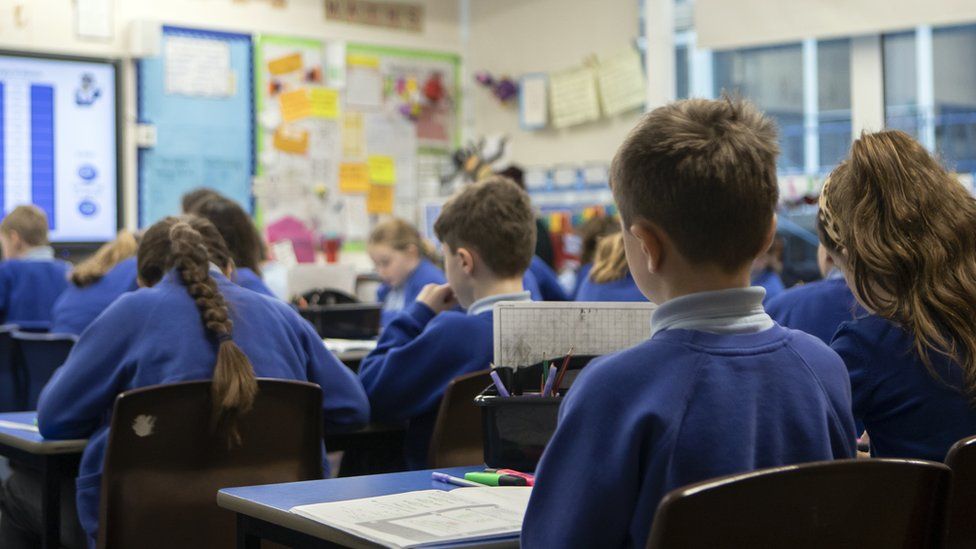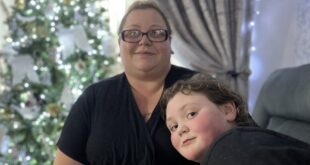
Most parents of children due to start primary school in autumn 2024 need to apply for a place.
Different rules and deadlines apply in England, Wales, Northern Ireland and Scotland.
When do I need to apply for a primary school place for my child?
In England and Wales, children start school the September after their fourth birthday.
Applications for September 2024 places are open in England until 15 January 2024, and in Wales until 8 January.
In Northern Ireland, children start primary school in September if they turn four by 1 July of that year. Applications for places are open between 9 and 26 January.
In Scotland, local councils allocate school places. If your child is still four years old on the date they are due to start primary school, you can defer their entry by a year.
How do I apply for a primary school for my child?
Parents in England and Wales apply through their local council, either online or by using an application form.
Applications for children who live in the 33 London local authority areas and Surrey are collated centrally through the Pan-London Co-ordinated Admissions Scheme.
In Northern Ireland, parents apply through the Education Authority website.
In Scotland, parents don’t apply as places are centrally allocated.
- BBC Bitesize – Applying for a primary school place
- LISTEN: What makes a good school?
What if I miss the primary school application deadline?
If you miss the deadline in England and Wales, your application will not be considered until after the first round of offers has been made.
In Northern Ireland, you will only be able to apply to schools which still have places available after offers are made to those who applied on time.
In Scotland, as councils decide where children are placed, there is no deadline to miss.

What about children with special education needs and disabilities?
If your child has special needs and disabilities (SEND) in England, their Education, Health and Care Plan (EHCP) will specify a school, which must give them a place.
In Wales, a child’s SEND statement will set out a particular school the local authority thinks is appropriate.
In Northern Ireland, there is a separate application process for children with a SEND statement.
In Scotland, local authorities work with parents to identify the best option.
When is offer day?
In England and Wales, primary school offers are made on 16 April.
In Northern Ireland, places are offered at the end of April but the date has not yet been confirmed.
In Scotland, no offers are made, as councils decide which school children attend.
How are primary school places decided?
In England and Wales, the school or the local council decide based on admissions criteria, but these can vary.
All state-funded schools must give top priority to children who are in care or being looked after, or who have been in care.
Priority may then be given to children:
- who live closest
- who already have a sibling at the school
- from a particular religion (for faith schools)
- who are eligible for the pupil premium – which is linked to free school meals and used as a measure of disadvantage
- whose parent has worked at the school for two years or more
Attending nursery or pre-school at a particular school does not guarantee a reception place.
In Northern Ireland, schools make the decision based on specified admission criteria, similar to those in England and Wales.
In Scotland, local councils use “catchment areas” to decide where students go to school.

What if you don’t get the primary school you want?
In England, the local council must provide a place elsewhere, usually the nearest school that has spaces.
You can also put your child’s name on waiting lists for other schools. These lists must be open for at least the first term of each academic year.
In Wales, children will be added to the school waiting list.
In Northern Ireland, parents will be asked to choose a new preference from a list of schools that still have places.
In Scotland, the council selects a school in your local catchment area. You can ask for another school outside your local catchment area, and the council must allow this if there is space – but it is not guaranteed.
Can you appeal against the school place decision?
Parents can appeal, but the process is different across the UK.
In England and Wales, the final decision is made by an independent panel.
During a hearing, the council or school explains why the application was rejected and parents make the case for their child being admitted.
Applications can be turned down if classes are already at capacity.
In Northern Ireland, appeals are considered at a tribunal.
In Scotland, councils have their own rules for appeals.
- Wealthy biggest winners from school appeals



